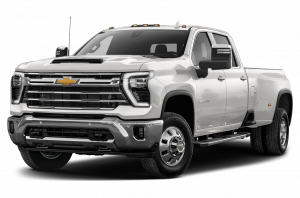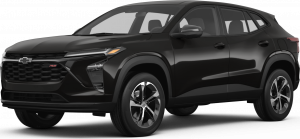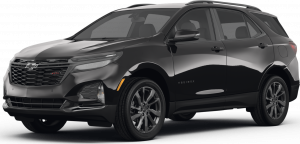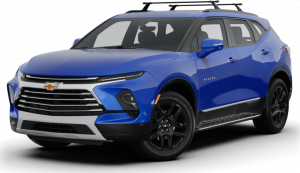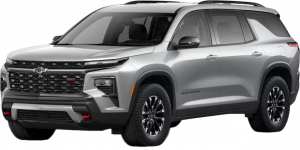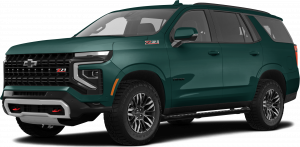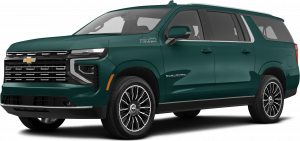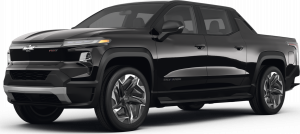Chevrolet Electric and Hybrid Models in Redlands

In the heart of Redlands, where the beauty of California's landscape meets innovation, Chevrolet is making waves with its electric and hybrid vehicle lineup. For residents looking towards a greener future, Chevrolet's commitment to efficiency and environmental stewardship offers a glimpse into a sustainable driving experience that doesn't compromise on performance.
Embracing the Future: Chevrolet's Leap into Electric and Hybrid Models
Chevrolet Bolt EV: Leading the Charge
The Chevrolet Bolt EV has become a staple on the streets of Redlands, known for its impressive range and zero emissions. Ideal for the eco-conscious driver, the Bolt EV can cover vast distances on a single charge, making it perfect for everything from daily commutes to adventurous road trips through California. With fast-charging capabilities and an intuitive, user-friendly interface, the Bolt EV combines convenience with care for the environment.
Chevrolet Malibu Hybrid: Elegance and Eco-Friendliness Combined
For those who prefer the sophistication of a sedan without sacrificing eco-friendliness, the Chevrolet Malibu Hybrid is a match made in heaven. Blending sleek design with cutting-edge hybrid technology, the Malibu Hybrid offers Redlands drivers the best of both worlds—style and sustainability. Enjoy reduced emissions and enhanced fuel efficiency, all while cruising in comfort.
Chevrolet Bolt EUV
The Chevrolet Bolt EUV expands on the electric innovation of the Bolt EV with more space and utility. It's designed to provide ample room for passengers and cargo while maintaining impressive efficiency and electric performance. The Bolt EUV offers features such as Super Cruise, the first true hands-free driving assistance technology for enabled roads, and a user-friendly interface that makes managing your electric driving experience intuitive and straightforward. With a generous range on a single charge, the Bolt EUV is perfect for families and individuals who require more space without sacrificing the environmental and efficiency benefits of an electric vehicle.
Chevrolet Blazer EV
The Chevrolet Blazer EV is Chevrolet's step into the electric SUV market, reimagining the iconic Blazer as a fully electric model. It promises a blend of style, performance, and cutting-edge technology. The Blazer EV is expected to offer various powertrains to suit different driving needs and preferences, from efficient models perfect for daily commuting to more powerful versions designed for performance enthusiasts. With advanced safety features, connectivity, and a focus on providing a thrilling driving experience, the Blazer EV is set to be a compelling option for those looking to transition to electric without compromise.
Electric Vehicles vs. Gas Vehicles Pros and Cons
| Feature | Electric Vehicle | Gas Vehicle |
|---|---|---|
| Environmental Impact | Zero tailpipe emissions | Produces greenhouse gasses |
| Operating Cost | Lower electricity costs compared to gasoline | Fluctuating gas prices |
| Maintenance | Fewer moving parts, generally lower maintenance costs | Regular maintenance required for engine and other components |
| Performance | Instant torque, often quicker acceleration | Performance varies depending on engine and other factors |
| Fueling/Charging | Recharge at home or charging stations | Refuel at gas stations |
| Range | Limited range compared to gas vehicles, improving technology | Wider range, readily available refueling infrastructure |
| Sound | Quieter operation | Engine noise and vibrations |
The Benefits of Electric Vehicles
Electric vehicles (EVs) are becoming increasingly popular for a variety of compelling reasons. As we transition towards more sustainable lifestyles, the shift to electric transportation stands out as a significant step. Here are the key benefits of electric vehicles:
Environmental Benefits: Electric vehicles produce zero tailpipe emissions, which means they don't contribute to air pollution. This reduction in greenhouse gases and pollutants like nitrogen oxides and particulate matter is crucial for improving air quality and combating climate change.
Reduced Operating Costs: EVs are cheaper to operate than their gasoline counterparts. Electricity costs less than gasoline on a per-mile basis, which means you can save money every time you "refuel." Additionally, electric vehicles have fewer moving parts, leading to lower maintenance costs since there's less that can break or require servicing.
Energy Efficiency: Electric vehicles are significantly more efficient than internal combustion engine vehicles. They convert a higher percentage of the electrical energy from the grid to power at the wheels. This efficiency means that EVs can help reduce overall energy consumption for transportation.
Renewable Energy Integration: Electric vehicles can be charged using renewable energy sources, such as solar or wind power. This capability not only decreases the reliance on fossil fuels but also enhances the environmental benefits by further reducing the carbon footprint of driving.
Performance Benefits: Electric vehicles offer high torque from a standstill, providing quick acceleration and a smooth driving experience. This responsiveness and the lower center of gravity in many EVs contribute to improved handling and an enjoyable ride.
Government Incentives: To encourage the adoption of electric vehicles, many governments offer tax credits, rebates, and other incentives. These benefits can significantly reduce the upfront cost of an EV, making them more accessible to a wider range of consumers.
Reduced Noise Pollution: Electric vehicles are much quieter than their gasoline-powered counterparts, contributing to a reduction in noise pollution. This quiet operation can enhance the quality of life in urban areas and contribute to a more serene driving experience.
Energy Independence: By shifting away from oil and towards electricity, countries can reduce their dependence on imported petroleum and enhance their energy security. This transition can also help stabilize fuel costs, as electricity prices are generally more stable than oil prices.
Innovation and Technology: The push towards electric vehicles is driving innovation in technology, from advancements in battery storage and charging infrastructure to the integration of smart and autonomous vehicle features.
Increasing Choices: The variety of electric vehicles available is rapidly expanding, offering consumers a wide range of options. From compact cars and sedans to SUVs and trucks, there is an EV to meet almost any need or preference.
Chevrolet's Commitment to a Greener Tomorrow
Chevrolet's venture into electric and hybrid models is more than just a nod to innovation—it's a commitment to preserving the planet for future generations. By choosing an electric or hybrid vehicle, Redlands residents are not only enjoying the benefits of advanced technology and cost savings but also contributing to a significant reduction in carbon emissions. It's a step towards a cleaner, more sustainable Redlands and, indeed, a healthier world.
Benefits of Hybrid Vehicles
Hybrid vehicles combine the best of both worlds, integrating an internal combustion engine with an electric motor to enhance fuel efficiency and reduce emissions. As the automotive industry strides towards sustainability, hybrids present a compelling bridge technology for drivers looking to minimize their environmental impact while still enjoying the familiarity of a traditional fuel-powered vehicle. Here's a closer look at the benefits of hybrid vehicles:
Improved Fuel Efficiency: One of the most significant benefits of hybrid vehicles is their superior fuel efficiency compared to conventional vehicles. By using both an electric motor and a gasoline engine, hybrids can optimize fuel use and increase miles per gallon (MPG), saving drivers money on fuel costs over time.
Lower Emissions: Hybrid vehicles produce fewer emissions than their gasoline-only counterparts. The electric motor's assistance reduces the workload on the gasoline engine, leading to cleaner operation and a smaller carbon footprint. This is particularly beneficial in urban areas, where reducing air pollution is a priority.
Regenerative Braking: Hybrids utilize regenerative braking, a process that captures energy usually lost during braking and uses it to recharge the vehicle's battery. This efficiency not only conserves energy but also extends the lifespan of the braking system.
Performance Advantages: The electric motor in a hybrid provides instant torque, which can enhance the vehicle's acceleration and responsiveness. This makes hybrids not only efficient but also enjoyable to drive, with smooth handling and quick off-the-line performance.
Reduced Dependence on Fossil Fuels: By utilizing electric power for part of their operation, hybrids contribute to reducing reliance on oil and the associated geopolitical and environmental issues. This shift supports a more sustainable and secure energy future.
Tax Incentives and Rebates: Many governments offer financial incentives for hybrid vehicle purchasers, including tax credits, rebates, and other benefits. These incentives can make hybrids more affordable and attractive to consumers.
High Resale Value: As demand for fuel-efficient and environmentally friendly vehicles grows, hybrids tend to retain their value better than traditional gasoline vehicles. This can lead to higher resale values, making hybrids a smart investment for the future.
Versatility: Hybrid technology can be applied to a wide range of vehicle types, from compact cars to SUVs and trucks. This versatility means that drivers don't have to compromise on space, functionality, or preference when choosing a hybrid vehicle.
Quieter Operation: Thanks to the electric motor, hybrids operate more quietly than traditional vehicles, especially at low speeds. This reduced noise pollution contributes to a more peaceful driving experience and lessens the vehicle's impact on the surrounding environment.
Adaptability: Hybrid vehicles are well-suited for various driving conditions, efficiently managing city stop-and-go traffic and highway cruising. The ability to switch between power sources based on the driving scenario ensures optimal performance and efficiency.
Hybrid vehicles offer a practical and accessible option for drivers looking to reduce their environmental impact and fuel consumption without fully transitioning to an all-electric vehicle. With advancements in technology and increasing market availability, hybrids continue to present an appealing choice for eco-conscious consumers.
Join the Eco-Friendly Revolution with Chevrolet
As Redlands moves towards a greener future, Chevrolet stands ready to lead the way with its electric and hybrid models. Whether you're drawn to the efficiency of the Bolt EV or the hybrid elegance of the Malibu, Chevrolet offers eco-conscious drivers a way to embrace sustainability without compromise. Visit Tom Bell Chevrolet, and let us help you find the perfect electric or hybrid vehicle to match your lifestyle and eco-friendly goals. Together, we can make a difference—one mile at a time.
In your journey towards eco-friendly driving in Redlands, Tom Bell Chevrolet is your trusted partner, offering comprehensive insights and tips to enhance your Chevrolet's fuel efficiency. Dive into our guide on Maximizing Your Chevrolet's MPG in Redlands for practical advice tailored to our unique local driving conditions. For those in the market for a new vehicle, explore The Most Fuel-Efficient Chevrolet Models in Redlands to find an option that suits your eco-conscious lifestyle without compromising on performance. And, if you're keen on understanding how MPG ratings work and how they can benefit you, our Understanding MPG Ratings: A Guide for Redlands Drivers breaks down everything you need to know in an easy-to-grasp manner. Join us at Tom Bell Chevrolet, where efficiency meets innovation, and embark on your journey to smarter, more sustainable driving today.




